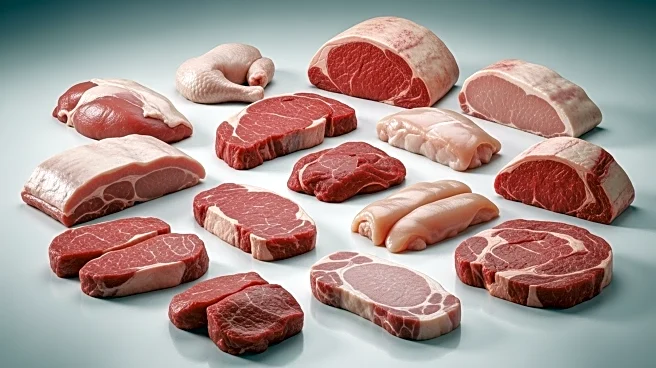What is the story about?
What's Happening?
Brazil faces a 76.4% effective tariff on its beef exports to the U.S. due to additional levies imposed by the Trump administration. In response, Brazil has redirected shipments to Mexico, which has become its second-largest beef market. The crisis highlights the impact of geopolitical risks on global meat trade and the importance of diversification strategies. Brazil is negotiating trade agreements with Mexico and exploring opportunities in China and Southeast Asia.
Why It's Important?
The tariff crisis underscores the vulnerability of global trade to geopolitical tensions and the need for strategic planning to mitigate risks. Brazil's ability to adapt by expanding its market presence in Mexico and other regions demonstrates the importance of supply chain agility. The situation highlights the role of trade policies in shaping market access and the need for exporters to balance short-term gains with long-term stability. The crisis may prompt a reevaluation of global trade agreements and their implications for food security.
What's Next?
Brazil is seeking approval for additional meatpacking plants to export to Mexico and negotiating a free trade agreement. The country may continue to explore new markets to reduce dependency on the U.S. The situation may lead to increased collaboration between global meat exporters to address trade challenges. The U.S. may need to reassess its tariff policies and consider negotiations to restore market access.
Beyond the Headlines
The crisis raises ethical questions about the impact of trade policies on food security and the responsibility of governments to ensure equitable access to markets. It also highlights the interconnectedness of global trade systems and the need for international cooperation to address geopolitical risks. The situation calls for a reevaluation of trade strategies and the role of innovation in enhancing supply chain resilience.

















